Introduction to Careers in Public Health
Careers opportunities in public health are expanding, largely due to the prevalence of preventable diseases and the challenges presented by an aging population, environmental contaminants, and natural disasters. Since the environment plays a major role in our health, many career options focus on understanding and improving conditions in both natural and built environments. These are often referred to as occupational and environmental health professions. Workers in these careers keep us safe by inspecting facilities, researching how the environment influences human health and disease, and minimizing environmental health risks.
In this Public Health Career Guide, you'll find:
- Employment Conditions
- Job Outlook
- Public Health Jobs and Job Description
- Degree Options and Salaries for Careers in Public Health
- PUBLIC HEALTH CAREERS FOR YOU TO EXPLORE!
Public Health Employment Conditions
Most public health professionals who work on environmental issues are employed by local and state health departments, environmental agencies, and occupational health and safety agencies. Some manage workplace safety for private companies, or provide services as part of environmental consultancies.
Work conditions can vary widely according to the type of position. Some public health workers inspect facilities containing hazardous substances, or respond to emergency situations. Some ensure worker safety in factories and plants. Others travel to inspect facilities or work from offices.
Public Health Job Outlook
The employment outlook for public health professionals varies by career track.
While employment of occupational health and safety specialists is projected to grow at a rate of 7%, on-pace with the national average for all professions, jobs for health educators and community health workers is expected to grow much faster than average, with a projected growth rate of 17% for the ten-year period leading up to 2030.
The job growth rate for epidemiologists is nearly double that for the same timeframe, with the number of jobs expected to increase by 30%.
2020 US Bureau of Labor Statistics job market data for Occupational Health and Safety Technicians, Epidemiologists, and Community Health Workers reflect national data, not school-specific information. Conditions in your area may vary. Data accessed October 2021.
Learn more by checking out the pages for different public health careers listed below.
Public Health Jobs & Job Description
With growing national and international populations, public health has become a complex network of jobs that work to keep all citizens well and improve quality of life, from patient-facing positions and education to research and development of critical vaccines and illness research. Jobs vary depending on a variety of factors, but all share some common traits:
- Collaborate on interdisciplinary projects as directed
- Serve as the subject matter expert on a particular area when need arises
- Act in the public's best interest at all times
- Work within the framework of the given public health initiative
- Understand and use the delivery targets for program integration
- Act at program authority when collaborating with local and state agencies
- Network with various public, non-profit and private health related agencies
- Respond as appropriate to inquiries received from superiors or the public
- Convey information by oral report, written report or presentation to stakeholders
- Solicit feedback and information from patients and clients
- Seek cost-effective prevention of public disease
- Be prepared to engage in emergency management of outbreaks
- Educate external personnel and the public at every opportunity
- Continue professional growth and education throughout career
Senior Public Health Tasks
Senior public health officials are concerned with the 'big picture' of reducing health inequalities through science, research and development, or programming initiatives. While duties vary greatly, all senior officials will encounter the following tasks in their career:
- Evaluate existing systems and services to ensure they meet the needs of patients and populations
- Develop, implement and monitor public health program outcomes
- Draft press releases, bulletins, reports and other correspondence for clients, administration and patients
- Execute and advocate for evidence-based methodology
- Identify all requirements and pitfalls of a course of action
- Oversee contracts, grants, and agreements that involve public health personnel
- Assign established public health programs populations based on geographic and demographic evidence
- Formulate exit benchmarks
- Recommend improvements to address program difficulties
- Review reports and literature to stay current on disease, management, and initiatives
Education Options
- Public Health Degree
- Environmental Health Degree
- Environmental Toxicology Degree
- Health Administration Degree
Degree Options and Salaries for Careers at the Intersection of Environmental Science and Public Health
Understanding the impacts of environmental changes on public health has been a long running process, one thrown into sudden and dramatic prominence by the emergence of COVID-19.
The interactions between humankind and the natural world have always been a vector for dangerous new disease, but only in recent decades has it been well-understood how introducing new environmental stressors and increasing encroachment into wild places has driven increasing exposure to viruses like SARS, Ebola, and MERS to create all new hazards to human health, life and prosperity.
Issues of food security and nutrition are also important considerations for public health professionals.
Jobs and Salary Expectations for Associate's Graduates in Environmental Health
While you won't find anything glamorous in environmental health work at the entry-level available with an associate's degree, but you will find some solid middle-class incomes and a relatively high level of demand around the country… no matter where you go, someone will always need their wastewater processed! But community health outreach and coordination jobs are also widely available if you are more of a people person.
Some qualifying positions, and their respective salaries, found in Bureau of Labor Statistics data in 2021 include the following examples (These examples do not represent job offers or an assurance of employment)*:
- Water and Wastewater Treatment Plant and System Operators: $49,090 - $79,620
- Occupational Health and Safety Technician: $53,340 - $89,780
- Health Education Specialist: $56,500 - $101,890
- Community Health Worker: $42,000 - $70,790
Positions for staff with associate's level qualifications tend toward the hands-on, which makes most programs of this sort very much healthcare oriented. Some common degrees include:
- Associate of Public Health
- AS in Health Science
- AS of Allied Health Science
The course requirements for these degrees will often be quite similar to those for other healthcare professions, leaning heavily on the basics of biology, chemistry, and other sciences. You can also expect to have an extra helping of computer and internet literacy courses to prepare you for both the vital record-keeping and research parts of the jobs.
Look for classes such as:
- Medical Terminology
- Introduction to Sociology
- Anatomy and Physiology
- Microbiology
- Nutrition
- Health Care Administration
Jobs and Salary Expectations for Bachelor's Graduates in Environmental Health
A broad range of entry-level positions are available for anyone with a master's degree in this field. Job titles include:
- Air Pollution Analyst
- Environmental Sanitation Engineer
- Environmental Health Professional
- Public Education Outreach Specialist
Salaries for these positions vary by responsibility and location.
A few examples, retrieved from the Bureau of Labor Statistics in September 2021, include (These examples do not represent job offers or an assurance of employment)*:
- Environmental Scientists and Specialists, including Health: $73,230 - $129,450
- Management Analyst: $87,660 - $156,840
- Conservation Scientist and Forester: $64,020 - $100,350
Bachelor's programs can get you out of the field and into the lab working in more advanced public health jobs. They can also help you get into management-level roles in some of the jobs noted under the associate's section. The degrees you will be looking at can include:
- BS in Biostatistics
- BA in Public Health
- BS in Nutrition
- BA in Sociology
- BS in Environmental Health
- BS in Environmental Microbiology
It's also very common for bachelor's programs to be used largely as stepping stones to master's degrees, which are commonly required for many public health positions.
More responsibility means more studying, though. These degrees are multidisciplinary in nature and require a broad range of expertise in everything from communication to microbiology. Your additional years in school studying public health and healthcare topics will take you into subjects like:
- Biology, Math, and Chemistry
- Quantitative Analysis
- Microorganism Biology
- Global Environmental and Public Health
- Radiation and Air Pollution
- Hazardous and Solid Waste Management
- Epidemiology
- Industrial Hygiene
These degrees often include an internship or practicum component to place you in actual public health roles doing real work under supervision as part of your studies.
Jobs and Salary Expectations for Master's and Doctoral Graduates in Environmental Health
Public health roles can be found around the country, anywhere that populations exist that can be affected by environmental health issues… which is to say, everywhere. Naturally, salaries vary considerably based on location in this field and the kind of work going on in different parts of the country. Of course, the challenges of rural Nevada environmental health differ considerably from those in Miami. Still, it's a wide range of options and with increasing demand and a variety of interesting specialties, you can find a job that suits you and brings home a solid salary just about anywhere in the country.
(These examples do not represent job offers or an assurance of employment)*:
- Epidemiologist: $74,560
- Medical and Health Services Manager: $104,280
- Emergency Management Director: $76,250
- Occupational Health and Safety Specialist: $76,340
You'll need to get a master's degree if you want to progress to the top jobs in environmental public health. As we've seen every day, the complexity of this field requires the utmost expertise from decision makers and advisers who have to make hard choices affecting millions of people.
Master's degrees available in this area include:
- MS in Environmental Sciences
- MS in Health Science in Environmental Health
- MPH (Master of Public Health) with Environmental emphasis
- MS in Health Informatics
Doctorate degrees in the field tend to be most useful for those who intend to make a career in academia or to conduct important research in either public sector positions or private companies such as drug manufacturers.
You will very commonly need to have a related bachelor's degree to apply to public health master's programs, and often some real-world experience in either healthcare or public health positions as well.
The curriculum for these degrees can mirror what is found at the bachelor's level, but there is also room for a significant amount of specialization that can take your studies into areas such as:
- Epidemiology and Toxicology
- Healthcare Management
- Sociology
You will certainly be expected to conduct some lab research and quite likely fill an internship role during your master's program.
It's a complex area that calls for the best education available to protect both man and nature.
* 2020 US Bureau of Labor Statistics salary figures and job growth projections for all occupations and job titles listed here reflect national data not school-specific information. Conditions in your area may vary. Data accessed September 2021.
Public Health Careers
There are a variety of career options in public health, ranging from facility inspection to epidemiological research. Most positions require a minimum of a bachelor's degree in occupational health and safety or a related field like environmental health, such as engineering, biology, or chemistry. More advanced positions may require a graduate degree such as a Master of Public Health (M.P.H.), or even a doctorate.
Click on the highlighted areas below to learn more about each of these public health career specialties.
Jump to Careers in Public Health
Air Pollution Analyst
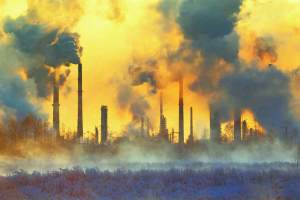
Air Pollution Analysts collect and analyze polluted air to devise environmentally friendly solutions to these problems. They employ the scientific method and critical thinking skills regularly, and often cooperate with other scientists while analyzing data. This field is growing because of increasing interest in environmental safety, the growing link between greenhouse gasses and global warming, and global interest in limiting pollution produced by different manufacturing processes and automobiles.
Learn more about how to become an Air Pollution Analyst >>>
Disaster Management Specialist
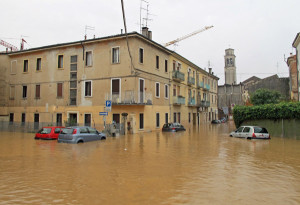
Most of us know that Los Angeles sits on a fault line, but fewer of us are aware that Yellowstone National Park is a massive caldera and super-volcano that's due to erupt. In fact, there are several active volcanoes in the western United States, including Mt. St. Helen's, which erupted in 1980, causing devastation in the area. The United States is a large country with blizzards in the East, tornadoes in the Midwest, hurricanes in the South, earthquakes and volcanoes out West, and floods common throughout. Disaster management specialists plan for these emergencies to minimize the risk to our lives, homes, businesses, and communities.
Learn more about how to become a Disaster Management Specialist >>>
Environmental Health Professional

Thousands of new chemicals enter the marketplace every year, posing potential hazards to the environment, workers, and the general public. Environmental health professionals play various protective roles to keep people and the environment safe. For example, they conduct inspections to make sure that landfills, hazardous materials facilities, and drinking water systems comply with regulations. Other environmental health professionals focus on the workplace environment. After all, all of those chemicals start out in someone’s workplace. And there are scores of other potential workplace hazards in a wide variety of industries. Environmental health specialists help keep people safe and healthy at work. These professionals are unique in that they work with virtually all aspects of business operations to run health programs. They coordinate with top management, human resources, unions, and government agencies to protect workers from chemical and workplace hazards.
Learn more about how to become an Environmental Health Professional >>>
Environmental Inspector
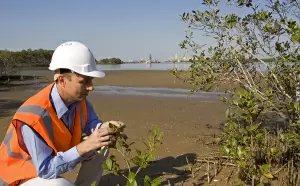
Environmental inspectors, or environmental compliance inspectors, are responsible for ensuring that organizations meet environmental regulations at the federal, regional, and local levels. Their primary duties are to ensure that all environmental, safety, and health regulations are being met and followed consistently. Thus, they must have a strong understanding of what those regulations are. To enter a career as an environmental inspector, one commonly obtains formal training within a broader environmental science degree program, and then obtains any number of certifications for environmental compliance inspector programs. The day-to-day activities of environmental inspectors typically include a mix of office and site-auditing work, where they will visit sites, inspect the facilities and operations, and report their findings to a higher authority. While similar to an environmental consultant, environmental inspectors are more involved with the legislative side of businesses and require further certification for legislation that varies from one geographic region to another. One exciting organization that makes use of environmental inspectors is the U.S. based Leadership in Energy and Environmental Design (LEED) program. LEED environmental inspectors work with architects and environmental designers to develop and certify green buildings at varying levels of sustainability. Environmental inspectors are an important piece of the environmental sector puzzle and are typically highly rewarding careers for detail-oriented individuals.
Learn more about how to become an Environmental Inspector >>>
Environmental Sanitation Engineer
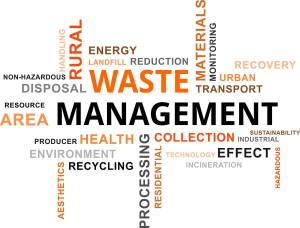
Do you see yourself working in a job that makes the world a better place and helps people to survive? Do you see yourself working overseas or in remote locations improving people’s quality of life? If so, Environmental Sanitation Engineering might be for you. Environmental Sanitation Engineers remove waste and improve access to clean drinking water, a job that is integral to the existence of life all over the world. Many developing countries struggle to survive in unsanitary conditions with contaminated food and water. Environmental sanitation engineers work to reduce contamination and improve living conditions. Environmental Sanitation is an important job as it improves the quality of the environment, improves living conditions and reduces health problems and disease.
Learn more about how to become an Environmental Sanitation Engineer >>>
Environmental Toxicologist
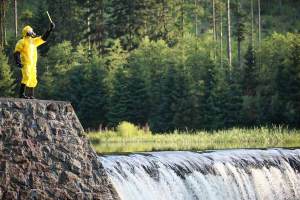
Most of us learned about Rachel Carson’s book Silent Spring as high school students. This classic and important work examined the effects of the pesticide DDT on bird populations, warned us about its dangers, and ultimately made the case for banning it. While Carson was a marine biologist by training, her famous work was akin to environmental toxicology – the study of the effects of toxic chemicals on organisms. Today, Carson might study the buildup of mercury in fish like tuna and swordfish, or the effects of the BP oil spill on seafood from the Gulf of Mexico. From pharmaceuticals to plastic microbeads, new chemical challenges continue to present themselves, and environmental toxicologists are on the front lines of predicting, preventing, and studying adverse environmental effects.
Learn more about how to become an Environmental Toxicologist >>>
Epidemiologist

A rising number of diseases and health conditions are known or suspected to have (at least partially) environmental causes. For example, heavy exposure to pollution from traffic can lead to heart and lung problems, and researchers have found that living near highways may contribute to autism. Whether it’s an unusually high occurrence of cancer in a neighborhood or lead poisoning affecting the children of New Orleans, epidemiologists are on the case, studying these patterns to understand why they exist, and what to do about them.
Learn more about how to become an Epidemiologist >>>
Groundwater Protection Specialist
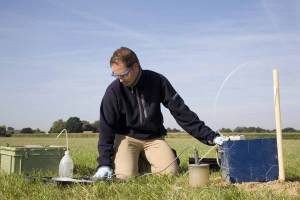
Groundwater Protection Specialists observe and analyze the health and wellness of groundwater. They often spend a lot of time in the field taking measurements and collecting data. While searching for the source of pollution, these professionals may be exposed to toxic chemicals or adverse weather conditions. Groundwater Protection Specialists spend the other portion of their time in labs and offices, going over their data and attempting to devise comprehensive solutions to the pollution issue. Due to the increasing stresses placed on the environment, this profession is projected to grow much faster than average in the next 10 years. Relative to other conservation professions, it requires relatively little education or special certifications.
Learn more about how to become a Groundwater Protection Specialist >>>
Public Education Outreach Specialist

Our increasingly urbanized society, along with the farmland needed to feed it, are often viewed as incompatible with the needs of wildlife. The number of human-wildlife conflicts around the world will likely rise as people and farms expand into new territory. But new strategies that can balance the requirements of both humans and wildlife are being devised.
Public educators and outreach specialists provide advice and assistance regarding wildlife management issues. Their methods are often designed to minimize conflict and preserve wild species. They educate the public about wildlife, conservation, and alternative wildlife management options that promote co-existence.
Learn more about how to become a Public Education Outreach Specialist >>>
Wastewater Treatment Operator

Water is the source of life. Without water there can be no humans and no animal or plant life. If you want to truly make a difference, working as a Wastewater Treatment Operator is a great career choice. Wastewater treatment plant and system operators manage a system of machines, often through the use of control boards, to transfer or treat water or wastewater. By treating wastewater, it can be released safely into the environment or used for watering gardens or other actions that do not require drinking water.
Learn more about how to become a Wastewater Treatment Operator >>>
